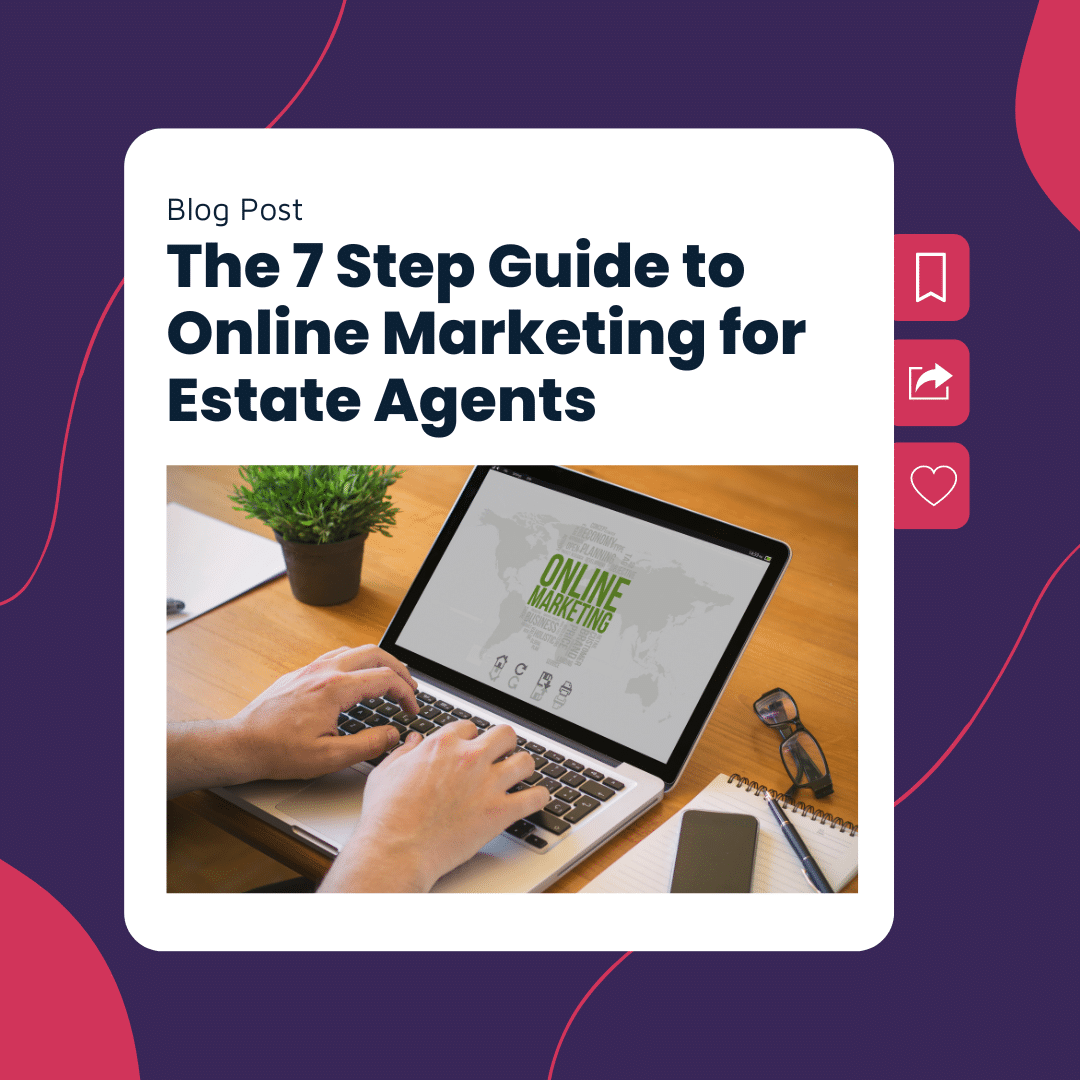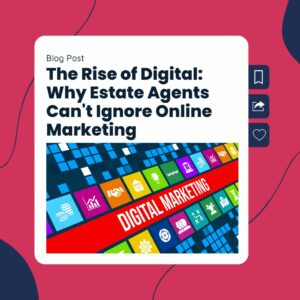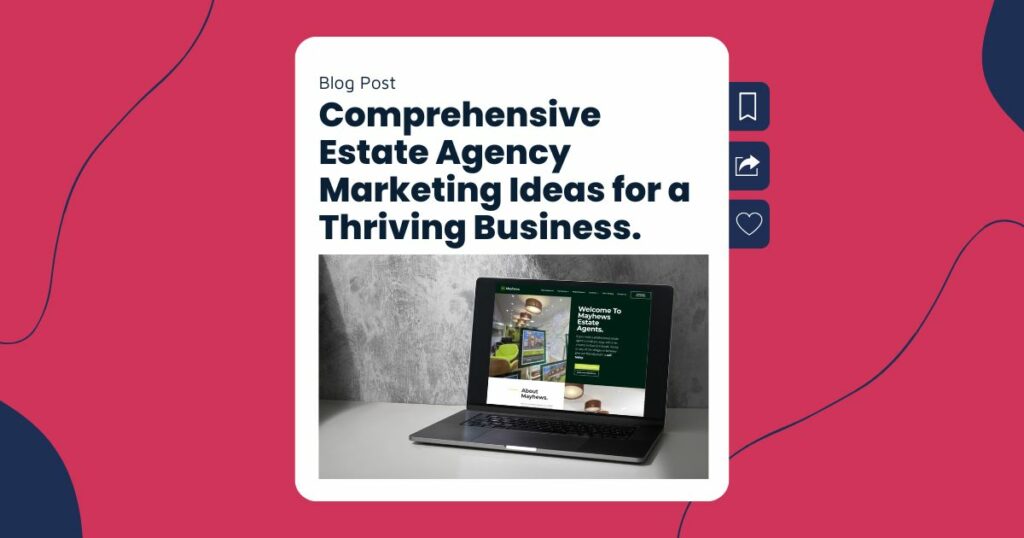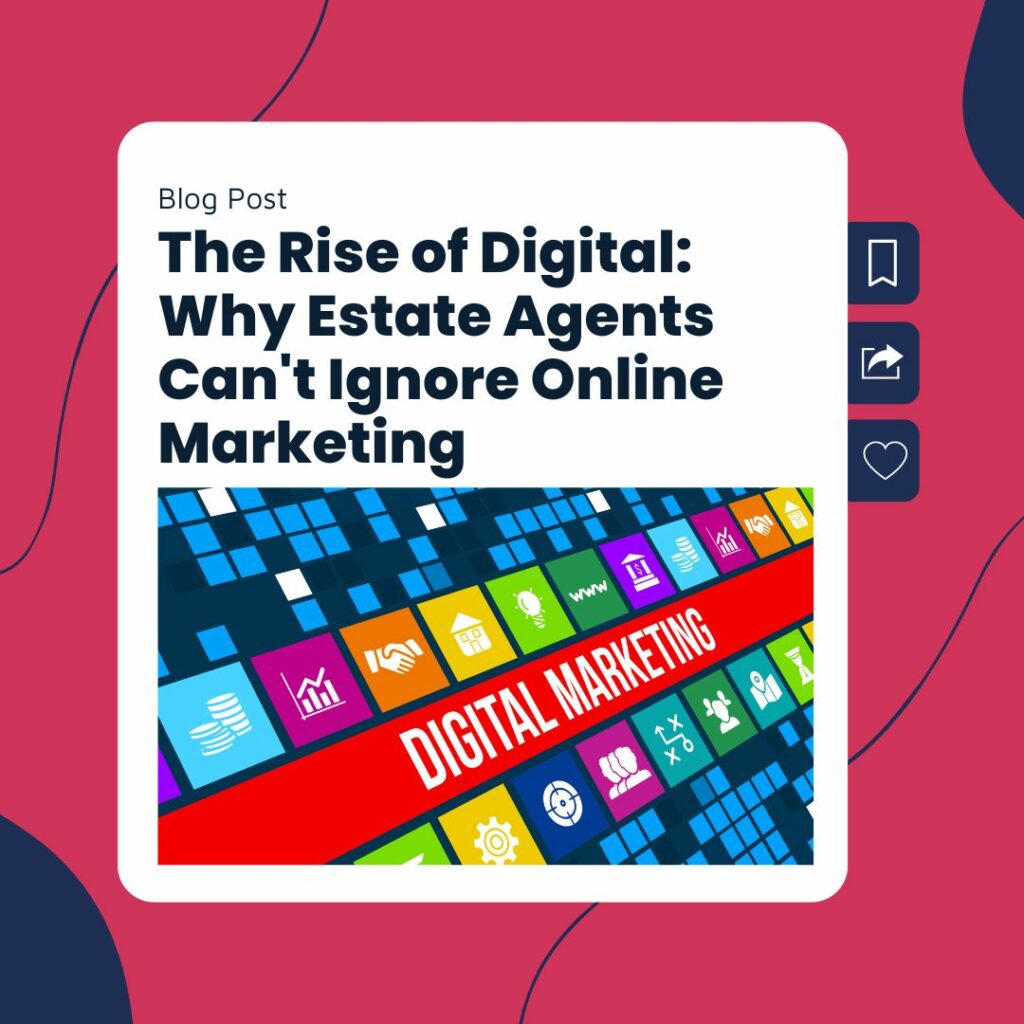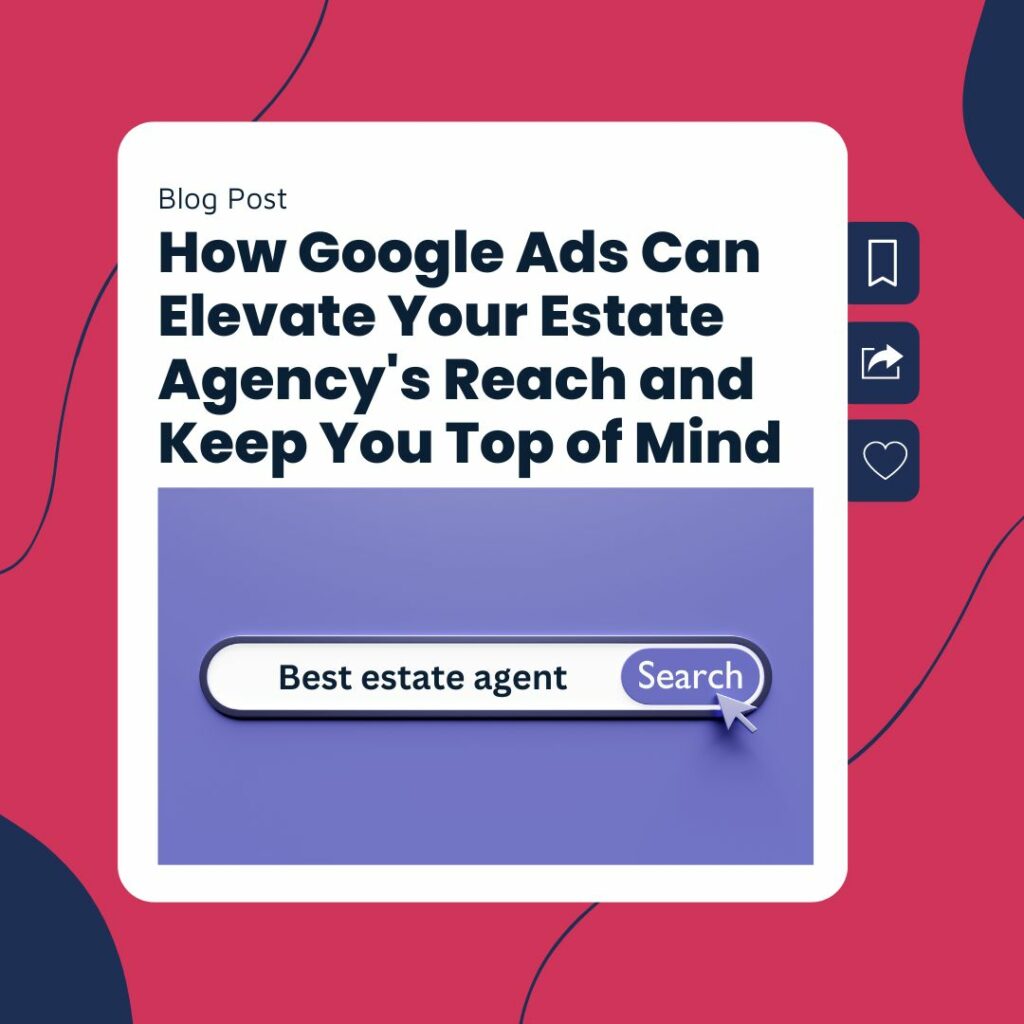Table of Contents
TL;DR
To succeed in the competitive real estate market, estate agents must embrace online marketing. By developing a comprehensive strategy that includes website design, SEO, content marketing, social media marketing, email marketing, and paid advertising, estate agents can expand their online presence, engage their audience, and generate more qualified leads.
Introduction
Welcome to the ultimate guide to online marketing for estate agents. In the fast-paced, competitive world of real estate, it’s essential to stay ahead of the game and maximise your online presence. This comprehensive guide will cover the essential components of a successful online marketing strategy tailored for estate agents, from website design to search engine optimisation, content marketing, and more.
As a real estate professional, you know that the industry is ever-evolving. Today, more than ever, your online presence plays a significant role in your success. By leveraging the power of online marketing, you can increase your visibility and drive more qualified leads to your business. In this expanded guide, we will explore the most effective digital marketing strategies for estate agents, emphasising the importance of SEO optimisation and our primary keyword: “Online Marketing for Estate Agents.”
Why Online Marketing is Essential for Estate Agents
Online marketing is now a fundamental aspect of the real estate industry. As more and more buyers and sellers turn to the internet to research properties and connect with estate agents, a strong online presence has become crucial for success. Here are a few reasons why online marketing is essential for estate agents:
- Reach a wider audience: Online marketing allows you to connect with potential clients from all over the world. By leveraging various online channels, you can showcase your properties to a broader audience, increasing the chances of making a sale. In today’s globalised world, the ability to tap into international markets can give your agency a significant edge.
- Cost-effective: Compared to traditional marketing methods, digital marketing can be more cost-effective, allowing you to allocate your budget more efficiently and achieve better results. By utilising digital channels, you can reach a wider audience with targeted campaigns, ensuring that your marketing dollars are well-spent.
- Measurable results: Online marketing provides estate agents with data-driven insights, making it easier to track the performance of marketing campaigns and make data-driven decisions to improve results. This level of transparency enables you to fine-tune your marketing efforts and ensure that you’re getting the most out of your investment.
- Build credibility and trust: A professional online presence can help you build credibility and trust with potential clients, who often research estate agents before making contact. By showcasing your expertise through high-quality content, you can establish yourself as a thought leader in the industry and attract more clients.
- Stay competitive: As the industry becomes increasingly digital, estate agents who fail to adapt risk being left behind by their more tech-savvy competitors. Embracing digital marketing is crucial for maintaining your competitive edge and staying ahead of the curve.
Developing a Comprehensive Online Marketing Strategy
A successful online marketing strategy for estate agents should include the following components:
Website Design and User Experience
Your website is often the first point of contact between potential clients and your estate agency. A well-designed website that offers a seamless user experience is crucial for making a strong first impression and converting visitors into leads. Key elements of an effective website design for estate agents include:
- Responsive design: Ensure that your website is mobile-friendly and looks great on all devices, as more and more clients are using smartphones and tablets to browse the web.
- Easy navigation: Organise your website’s content in a clear and logical manner, making it easy for visitors to find what they’re looking for.
- Fast-loading pages: Optimize your website’s loading speed, as slow pages can frustrate users and lead to a higher bounce rate.
- Clear calls-to-action (CTAs): Include well-placed CTAs that encourage visitors to take action, such as contacting you, signing up for a newsletter, or booking a property viewing.
- High-quality visuals: Incorporate high-resolution images and videos that showcase your properties in the best possible light, capturing the attention of potential clients.
- Property search functionality: Offer a user-friendly property search feature that allows visitors to filter listings by criteria such as location, property type, price range, and more. This functionality will enable clients to find suitable properties with ease, increasing the chances of converting them into leads.
- Client testimonials and social proof: Display client testimonials, reviews, and success stories on your website to build credibility and trust. Social proof demonstrates your agency’s ability to deliver results and helps potential clients feel more confident in choosing your services.
By incorporating these elements into your website design, you will create an engaging and user-friendly experience that effectively showcases your properties, demonstrates your expertise, and encourages potential clients to take action.
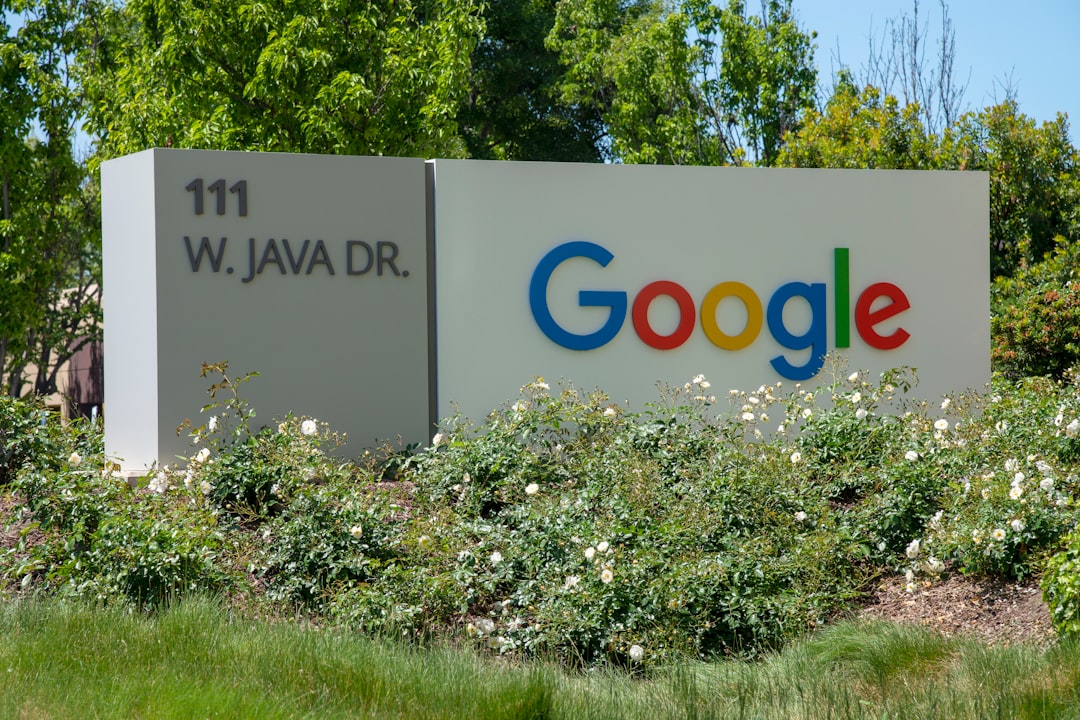
Search Engine Optimisation (SEO)
Effective SEO is essential for driving organic traffic to your website and improving its visibility in search engine results. By optimising your website for search engines, you increase the likelihood of potential clients finding your agency when searching for real estate services. Key aspects of SEO for estate agents include:
- Keyword research: Identify relevant keywords and phrases that potential clients are searching for, such as “Best Estate Agents Near Me” and incorporate them into your website content.
- On-page optimisation: Optimise your website’s title tags, meta descriptions, header tags, and URLs with target keywords.
- Local SEO: Claim and optimise your Google My Business listing, and ensure consistent NAP (name, address, phone number) information across all online directories.
- Link building: Earn high-quality backlinks from authoritative websites in the real estate industry to improve your website’s domain authority.

Content Marketing and Blogging
Content marketing and blogging are powerful tools for driving traffic, establishing thought leadership, and generating leads. Consider creating content that appeals to your target audience and incorporates your primary keyword, such as:
- Property listings and descriptions
- Local market updates and trends
- Tips for buyers and sellers
- Neighbourhood profiles
- Success stories and case studies
Regularly updating your blog with fresh, engaging content not only helps with SEO but also keeps your audience informed and engaged, further establishing your agency as a trusted resource in the real estate industry.
Check out our guide: Blogging For Estate Agents – The Only Guide You’ll Need!

Social Media Marketing
Social media platforms, such as Facebook, Instagram, Twitter, and LinkedIn, provide excellent opportunities to engage with your audience and showcase your properties.
Key strategies include:
- Regularly posting high-quality images and videos of your properties, incorporating relevant hashtags and your primary keyword when appropriate
- Sharing informative content from your blog
- Engaging with followers and responding to comments and messages
- Collaborating with influencers and other industry professionals to expand your reach
Our Marketing Platform for Estate Agents can help you post to multiple channels easily!

Email Marketing
Email marketing allows you to maintain contact with potential clients and nurture leads through personalised communication. Key components include:
- Building an email list through website sign-ups and lead generation forms
- Sending regular newsletters with market updates, property highlights, and informative content
- Segmenting your email list to target specific groups of potential clients, such as first-time buyers or investors
- Implementing drip email campaigns to nurture leads over time
- Monitoring open rates, click-through rates, and conversions to optimize your email marketing efforts

Paid Advertising: Google Ads and Social Media Ads
Paid advertising can help you reach a targeted audience and drive qualified leads to your website. Consider investing in:
- Google Ads: Run targeted pay-per-click (PPC) campaigns to appear at the top of search results for relevant keywords, such as “best estate agents in my area”
- Social media ads: Leverage platforms like Facebook and Instagram to create highly targeted ads that reach your ideal clients based on demographics, location, interests, and behaviour’s.
Allocate a budget for paid advertising and continuously monitor and optimize your campaigns to achieve the best possible results. A/B testing different ad creatives, targeting options, and bidding strategies can help you maximise your return on investment (ROI).

Analytics and Measuring Success
To ensure the effectiveness of your online marketing efforts, it’s crucial to track key performance indicators (KPIs) and analyse data. Use tools like Google Analytics to monitor:
- Website traffic and user behaviour
- Conversion rates for various marketing channels
- Social media engagement and follower growth
- Email open rates and click-through rates
Regularly reviewing this data allows you to identify areas for improvement, adjust your strategies accordingly, and make data-driven decisions that optimize your digital marketing efforts.
Key Points
To help you remember and apply the essential components of a successful digital marketing strategy for estate agents, here’s a quick summary of the key points discussed in this guide:
- Website Design and User Experience: Create a responsive, user-friendly website with clear navigation, fast-loading pages, and compelling calls-to-action.
- Search Engine Optimisation (SEO): Conduct keyword research, optimize on-page elements, focus on local SEO, and earn high-quality backlinks.
- Content Marketing and Blogging: Produce informative, engaging content tailored to your target audience and regularly update your blog.
- Social Media Marketing: Leverage platforms like Facebook, Instagram, Twitter, and LinkedIn to showcase your properties and engage with your audience.
- Email Marketing: Build an email list, send personalised newsletters, and segment your audience for targeted campaigns.
- Paid Advertising: Invest in Google Ads and social media ads to reach a targeted audience and drive qualified leads to your website.
- Analytics and Measuring Success: Track key performance indicators and use data-driven insights to optimize your digital marketing efforts.
Conclusion
In today’s competitive real estate landscape, a strong online marketing strategy is essential for estate agents looking to stay ahead of the curve. By combining effective website design, SEO, content marketing, social media marketing, email marketing, and paid advertising, you can maximise your online presence, drive more qualified leads, and achieve long-term success. Remember to monitor your analytics and adjust your strategies as needed, continually striving for improvement and growth.
Now equipped with this expanded guide to online marketing for estate agents, you have the tools and knowledge necessary to elevate your marketing game and secure your position as a leader in the industry. So go forth, and harness the power of digital marketing to propel your estate agency to new heights.
Frequently Asked Questions (FAQ)
How do I start developing a online marketing strategy for my estate agency?
Begin by evaluating your current online presence and identifying areas for improvement. Then, develop a plan that incorporates website design, SEO, content marketing, social media marketing, email marketing, and paid advertising, tailored to your specific target audience and goals.
What is the role of SEO in online marketing for estate agents?
SEO is crucial for driving organic traffic to your website and improving its visibility on search engines. A well-optimised website will rank higher in search results, making it more likely for potential clients to find and engage with your estate agency.
How important is social media marketing for estate agents?
Social media marketing is a powerful tool for engaging with your audience and showcasing your properties. Regularly posting high-quality content and engaging with followers can help you build brand awareness, establish trust, and generate leads for your estate agency.
What types of content should estate agents create for their content marketing strategy?
Estate agents should create content that appeals to their target audience, such as property listings and descriptions, local market updates, tips for buyers and sellers, neighbourhood profiles, and success stories or case studies.
How can I measure the success of my online marketing efforts?
Use tools like Google Analytics to track key performance indicators (KPIs), such as website traffic, conversion rates, social media engagement, and email open and click-through rates. Analysing this data can help you identify areas for improvement and make data-driven decisions to optimize your digital marketing strategy.
Should I invest in paid advertising for my estate agency?
Paid advertising, such as Google Ads and social media ads, can help you reach a targeted audience and drive qualified leads to your website. It’s important to allocate a budget for paid advertising and continuously monitor and optimise your campaigns to achieve the best possible results.

